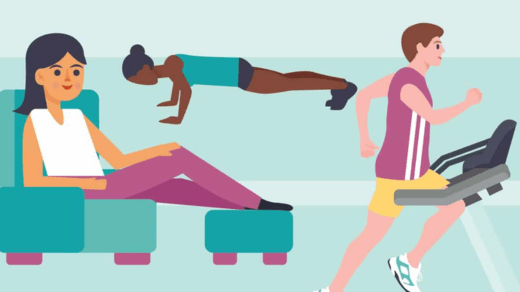
Introduction: Maintaining an active and healthy lifestyle is crucial for seniors to enhance their well-being, independence, and quality of life. This guide explores 30 key points related to fitness for seniors, along with the pros and cons associated with each aspect, to help older adults navigate the path to staying active and independent.
- Improved Quality of Life:
- Pros: Regular exercise can lead to a more fulfilling life.
- Cons: Initial motivation may be a challenge.
- Independence:
- Pros: Staying active promotes self-sufficiency.
- Cons: Health issues can limit independence.
- Strength Training:
- Pros: Builds and maintains muscle mass.
- Cons: Requires proper form and guidance.
- Cardiovascular Health:
- Pros: Cardio exercises support heart health.
- Cons: Joint issues may limit certain activities.
- Balance and Stability:
- Pros: Balance exercises reduce the risk of falls.
- Cons: Progression may be slow.
- Flexibility and Mobility:
- Pros: Stretching routines improve range of motion.
- Cons: Flexibility may decline with age.
- Mental Health Benefits:
- Pros: Exercise helps alleviate stress and boosts mood.
- Cons: Depression and anxiety may deter participation.
- Social Interaction:
- Pros: Group fitness fosters social connections.
- Cons: May require finding suitable groups.
- Joint Health:
- Pros: Low-impact activities protect joints.
- Cons: Chronic conditions may still impact joints.
- Cognitive Function:
- Pros: Exercise can enhance cognitive abilities.
- Cons: Initial memory lapses may discourage some.
- Injury Prevention:
- Pros: Regular activity reduces the risk of injury.
- Cons: Overexertion can lead to injuries.
- Customized Programs:
- Pros: Tailored routines suit individual abilities.
- Cons: Finding suitable programs can be challenging.
- Nutritional Considerations:
- Pros: A balanced diet complements fitness efforts.
- Cons: Nutritional changes can be difficult.
- Hydration Importance:
- Pros: Staying hydrated is crucial for health.
- Cons: Aging can affect thirst perception.
- Chronic Condition Management:
- Pros: Exercise can help manage certain health conditions.
- Cons: Safety concerns may arise.
- Joint-Friendly Activities:
- Pros: Swimming and cycling are low-impact options.
- Cons: Access to suitable facilities may be limited.
- Regular Health Checkups:
- Pros: Routine checkups monitor overall health.
- Cons: Medical issues can impact fitness routines.
- Exercise Modifications:
- Pros: Exercises can be adapted for specific needs.
- Cons: Requires proper guidance and awareness.
- In-Home Workouts:
- Pros: Convenience of exercising at home.
- Cons: Motivation may wane in familiar settings.
- Functional Exercises:
- Pros: Focus on movements relevant to daily life.
- Cons: Progress may be slower than traditional exercises.
- Low-Impact Aerobics:
- Pros: Aerobics classes offer cardio benefits.
- Cons: Availability of suitable classes varies.
- Gentle Yoga and Tai Chi:
- Pros: Enhances flexibility, balance, and relaxation.
- Cons: May not provide intensive workouts.
- Injury Recovery:
- Pros: Exercise can aid recovery from injuries.
- Cons: Requires professional guidance.
- Consistency and Routine:
- Pros: Establishing regular routines is beneficial.
- Cons: Avoiding lapses in consistency is a challenge.
- Water Aerobics:
- Pros: Low-impact, full-body workout in the water.
- Cons: Access to pools may be limited.
- Seniors’ Fitness Classes:
- Pros: Tailored classes for older adults.
- Cons: Finding suitable classes may be challenging.
- Technology and Fitness Apps:
- Pros: Apps can provide workout guidance.
- Cons: Technological barriers may exist.
- Outdoor Activities:
- Pros: Enjoy nature while staying active.
- Cons: Weather-dependent activities.
- Community Resources:
- Pros: Access local programs for seniors.
- Cons: Resource availability may vary.
- Holistic Wellness:
- Pros: Fitness complements mental and emotional well-being.
- Cons: Balancing multiple aspects of wellness can be complex.
In conclusion, fitness for seniors is essential for maintaining health, independence, and overall well-being. While there are numerous benefits to staying active, it’s important to consider individual needs and limitations when crafting a fitness routine. Regular exercise, combined with proper nutrition and healthcare, can significantly enhance the quality of life for older adults.

